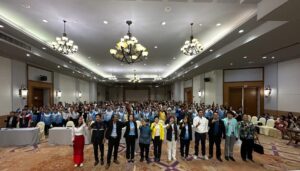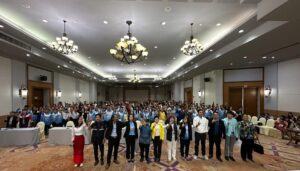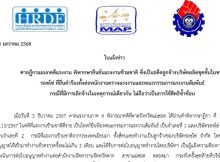Labor Law Clinic (LLC) was established in September 2005 in Mae Sot, Tak Province by Human Rights and Development Foundation in collaboration with the Sub-committee on Hill Tribes, Stateless, Migrant Workers and Displaced Persons of the Lawyers Council of Thailand. The Labor Law Clinic is supported by American Center for International Labor Solidarity.
คลินิกกฎหมายแรงงาน แม่สอด (Labor Law Clinic) ได้ตั้งขึ้นเมื่อเดือนกันยายน 2548 โดยมูลนิธิเพื่อสิทธิมนุษยชนและการพัฒนา (Human Rights and Development Foundation) ร่วมกับคณะอนุกรรมการสิทธิมนุษยชนด้านชนชาติ ผู้ไร้สัญชาติด้านแรงงานข้ามชาติและผู้พลัดถิ่น สภาทนายความ โดยการสนับสนุนของ ศูนย์อเมริกันเพื่อแรงงานนานาชาติ (ACILS)
SAFE MIGRATIONคลินิกกฎหมายแรงงานแม่สอด
…



